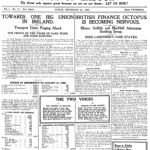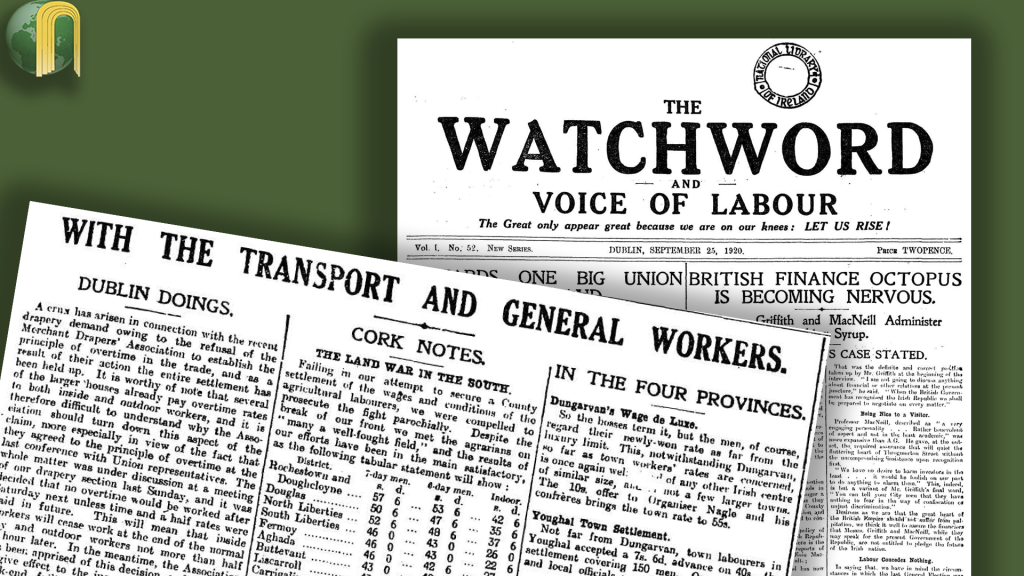In the midst of the political turmoil and ongoing war being fought in every town and village in the country, the cause of labour continued to dominate Ireland in September 1920 as people looked for both security in their employment but also better wages.
The radical newspaper, The Watchword of Labour, continued to be at the forefront of publicizing union activity across the country. In Dublin, in September 1920, those employed in Tea & Wine sought protection and help, as did those employed in the various picture houses (cinemas) across the capital. Others who were asked to improve the condition of workers include the auctioneers, James Adam & Son, while ‘Ireland’s National Newspaper’, the Freeman’s Journal was criticized for no considering the rights of its office cleaners. In the provinces there were a variety of disputes but in Clonmel, county Tipperary workers on the Perry estate were granted a 40s rate and time and a half for work on a Sunday. In Killala, county Mayo the ITGWU organizer named Reilly succeeded in better wages for town workers, while a similar requirement was argued for in Dungarvan, county Waterford. In other areas such as Limerick and Tralee it was the bacon factory workers who were mustering for support in their claims. However, in some areas unions were not as affective and The Watchword was not afraid to give them a ‘gee up’ or call out that their actions had been ineffective.Source: The Watchword of Labour 1919-1920, Saturday, September 25, 1920, page 7
 WW_25sep_1920__
WW_25sep_1920__
